Bird song in the Engadin
Decision table for identifying birdsong
| Bird | Description | Audio |
| stereotype melodic | ||
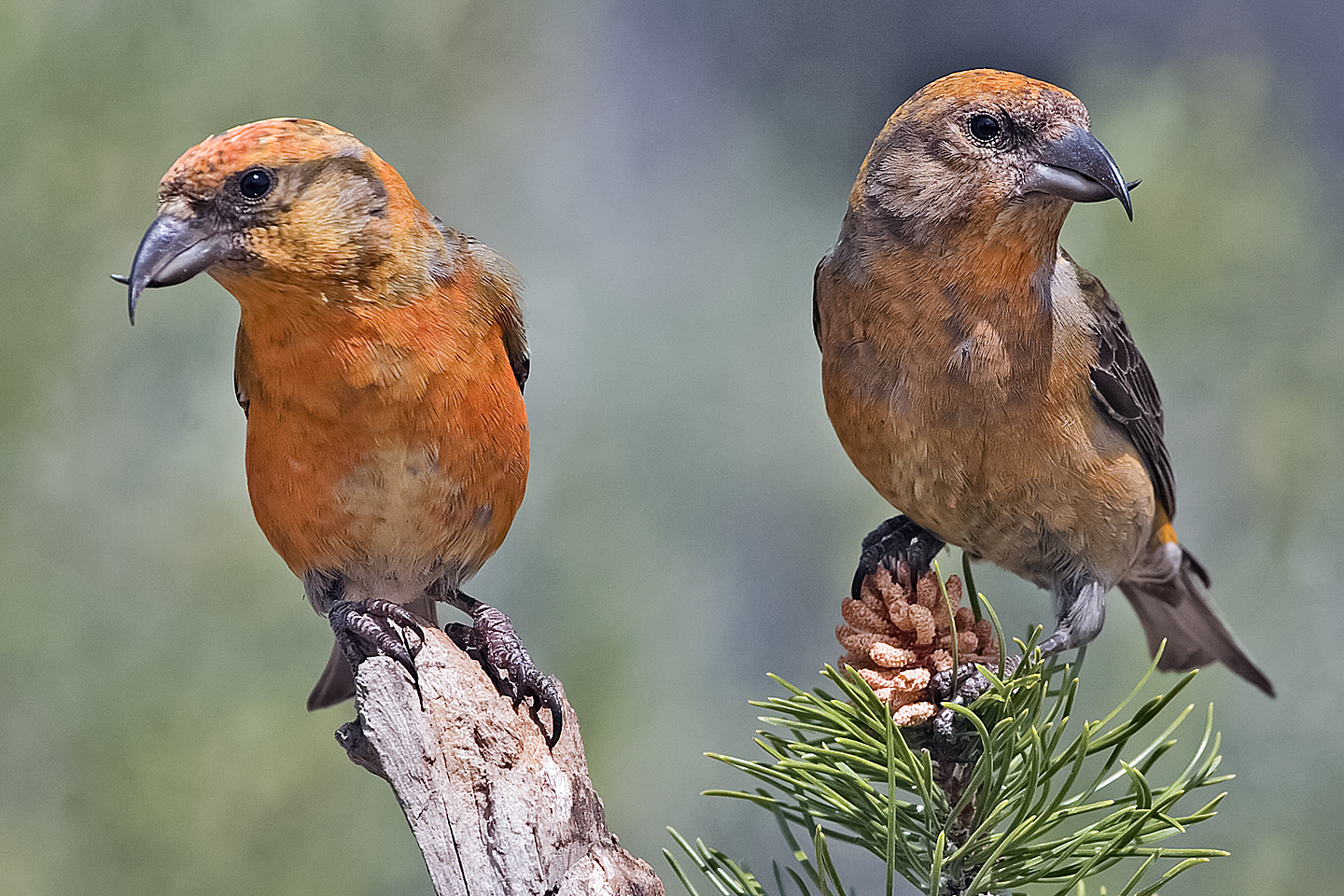 Red crossbill ■■
Red crossbill ■■ |
stereotype melodic slow low-high (2-10 KHz) .
Repeated hi-low pattern...well, doesn't always sound like that.
The very short beginning of my Stazersee recording before the static sets in does,
as well as a song found online.
One recording reminds me of cicada sounds.
Song: |
♫

|
| simple rhythmic | ||
| whoop, trill | ||
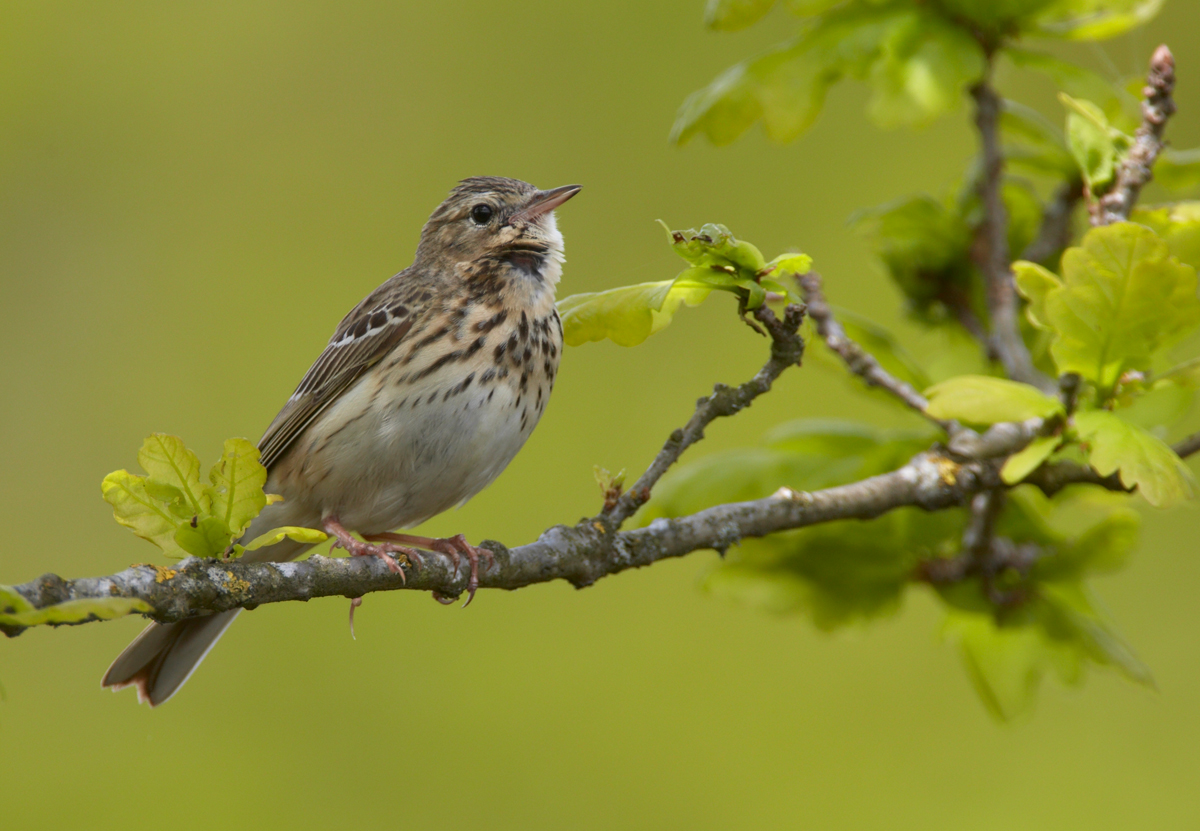 Tree pipit ■■
Tree pipit ■■ |
whoop, trill simple rhythmic slow medium (1-5 KHz) .
Reminds me of a greenfinch - series of trills, whoops and other sounds with a long pause
Song: |
♫

|
| one note | ||
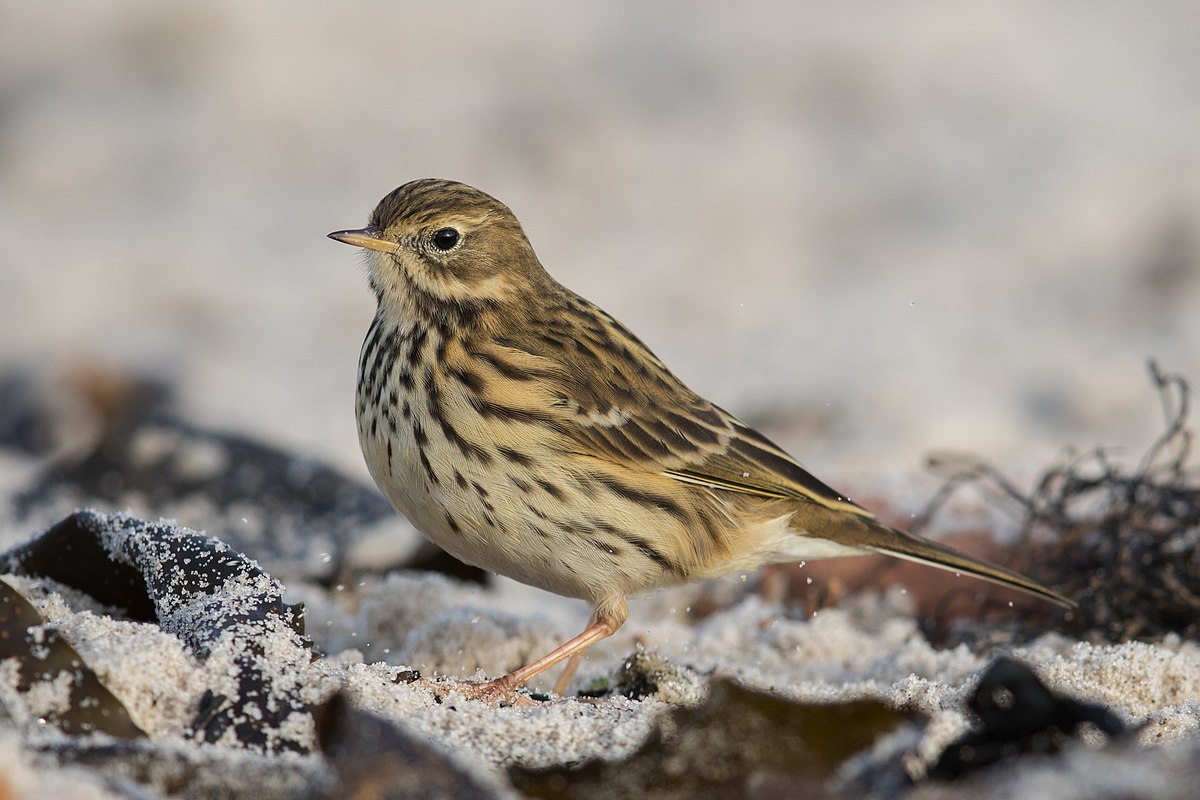 Meadow pipit ■■
Meadow pipit ■■ |
one note fast medium (1-5 KHz) .
Single note, possibly rising at the end. (Or: long 4 second phrases, gradually louder then softer; swoopy or whoopy.) Sings in flight. BirdID: Song very similar to Rock Pipit, but tone less full and more brittle. Lacks Rock Pipit's closing trill, and beginning is less "hammering". - but what does a rock pipit sound like?
Song: |
♫

|
| simple rhythmic | ||
|
|
simple rhythmic slow medium (1-5 KHz) .
BirdID says Song a primitive, plaintive series of short phrases, often with only 1-2 syllables (I heard 2-3 in Amden, sometimes chirpy, sometimes less musical).
Song: |
♫

|
| sings 30 seconds or longer | ||
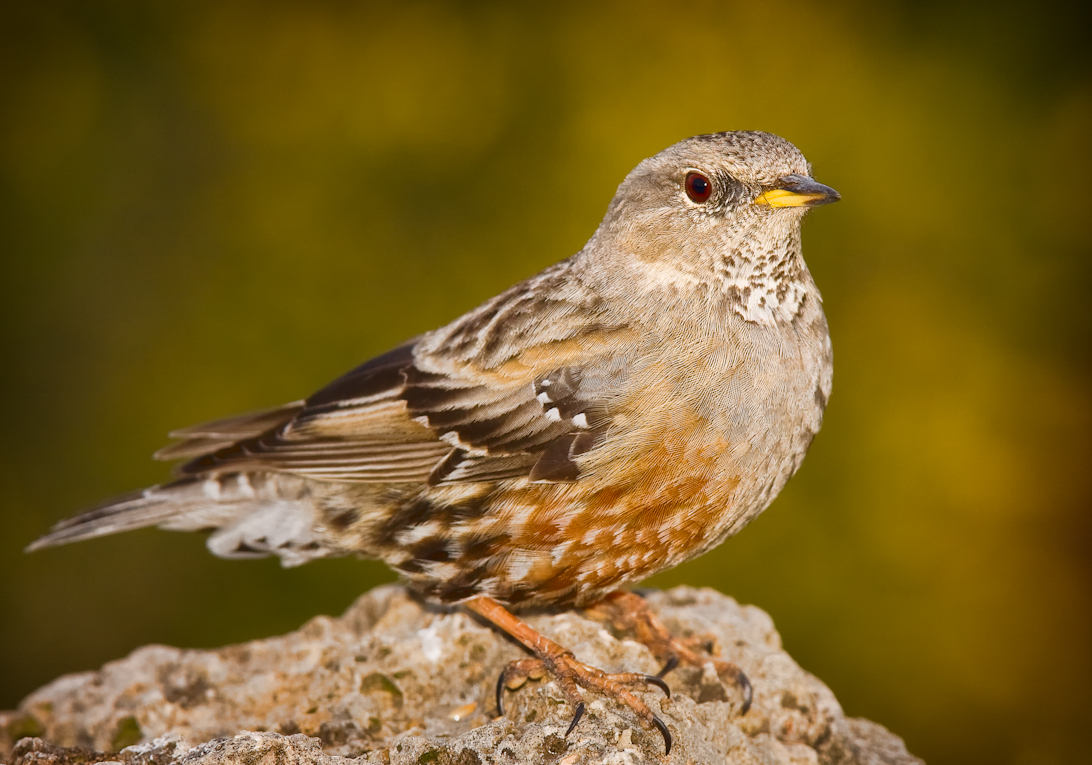 Alpine accentor ■■
Alpine accentor ■■ |
sings 30 seconds or longer fast low-high (1-8 KHz) .
Fast, long, chirpy
Song: |
♫

|
| simple rhythmic | ||
| trill | ||
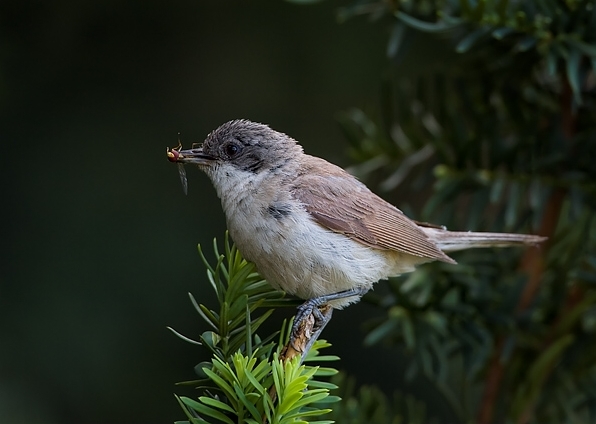 Lesser whitethroat ■■
Lesser whitethroat ■■ |
trill simple rhythmic slow medium (3-5 KHz) .
|
♫

|
| stereotype melodic | ||
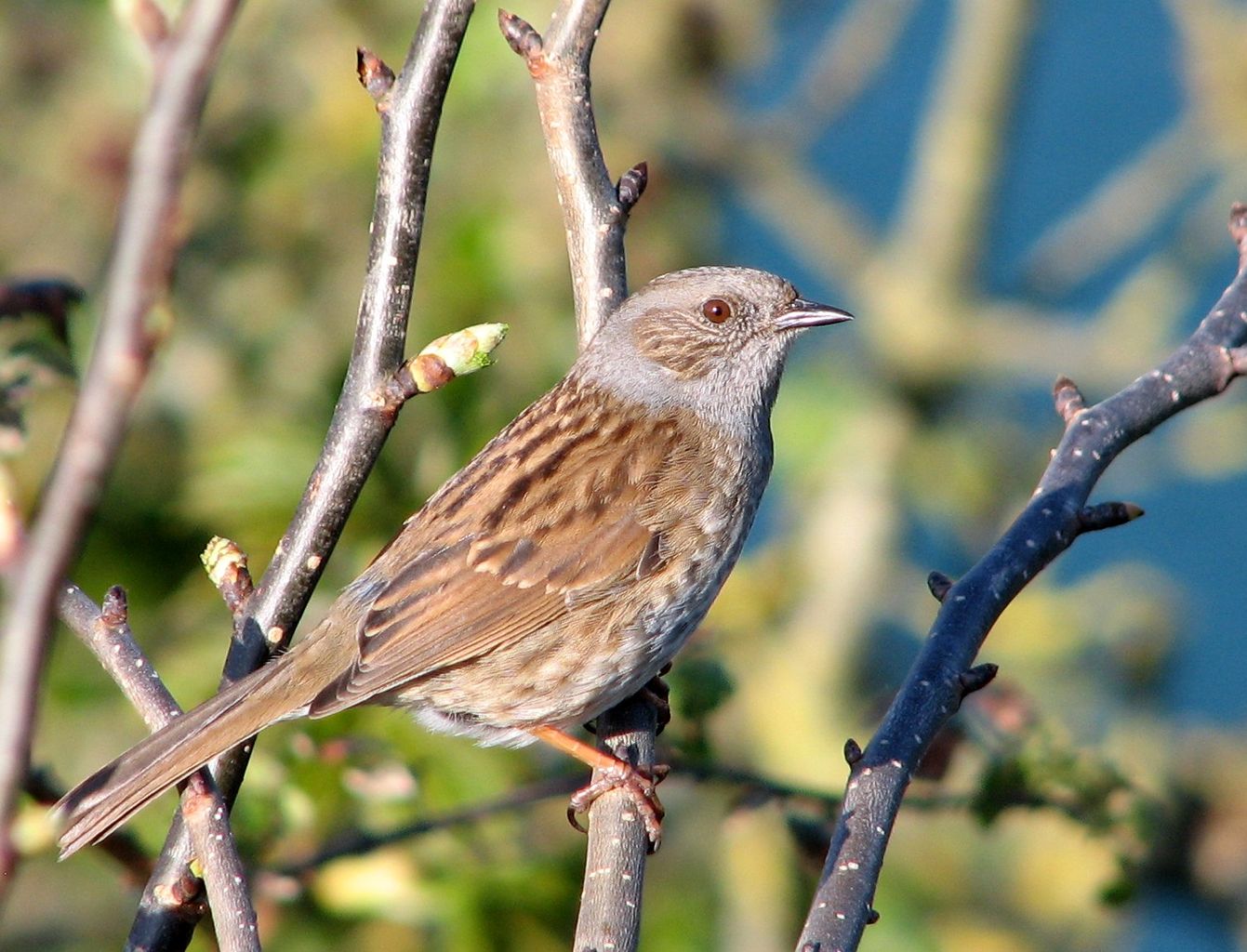 Dunnock ■■
Dunnock ■■ |
stereotype melodic fast high (4-8 KHz) .
General: High-pitched, repetitive but complex little tune. Song: |
♫

|
| mimicry, trill | ||
 Rock bunting ■■
Rock bunting ■■ |
mimicry, trill stereotype melodic fast low-high (2-9 KHz) .
AppearanceAndIdentification: orange-brauner bauch, weisse brust+kopf mit 3 schwarzen streifen am kopf (unter/am/ueber Augen), braun+dunkelbraun auf Fluegeln; aber Weibchen eher braun
Song: Notes from 2022: Short song, relatively long pause, repeated with slight variation? Has a very short triller of just 3 notes. May have heard and seen one walking parallel to the Aa on the way to Pfaeffikersee today, though the visual ID is very uncertain; the Xeno-Canto song here sounds different than my 2022 description - musical like a chaffinch but rising, not falling. Song: |
♫

|
| improvised melodic | ||
| mimicry | ||
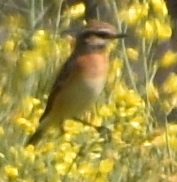 Whinchat ■■
Whinchat ■■ |
mimicry improvised melodic fast high (3-9 KHz) .
General: Short buzzy trilly sounds, 5-8 notes, high. Song: |
♫

|
| non-musical | ||
| mimicry, cawing | ||
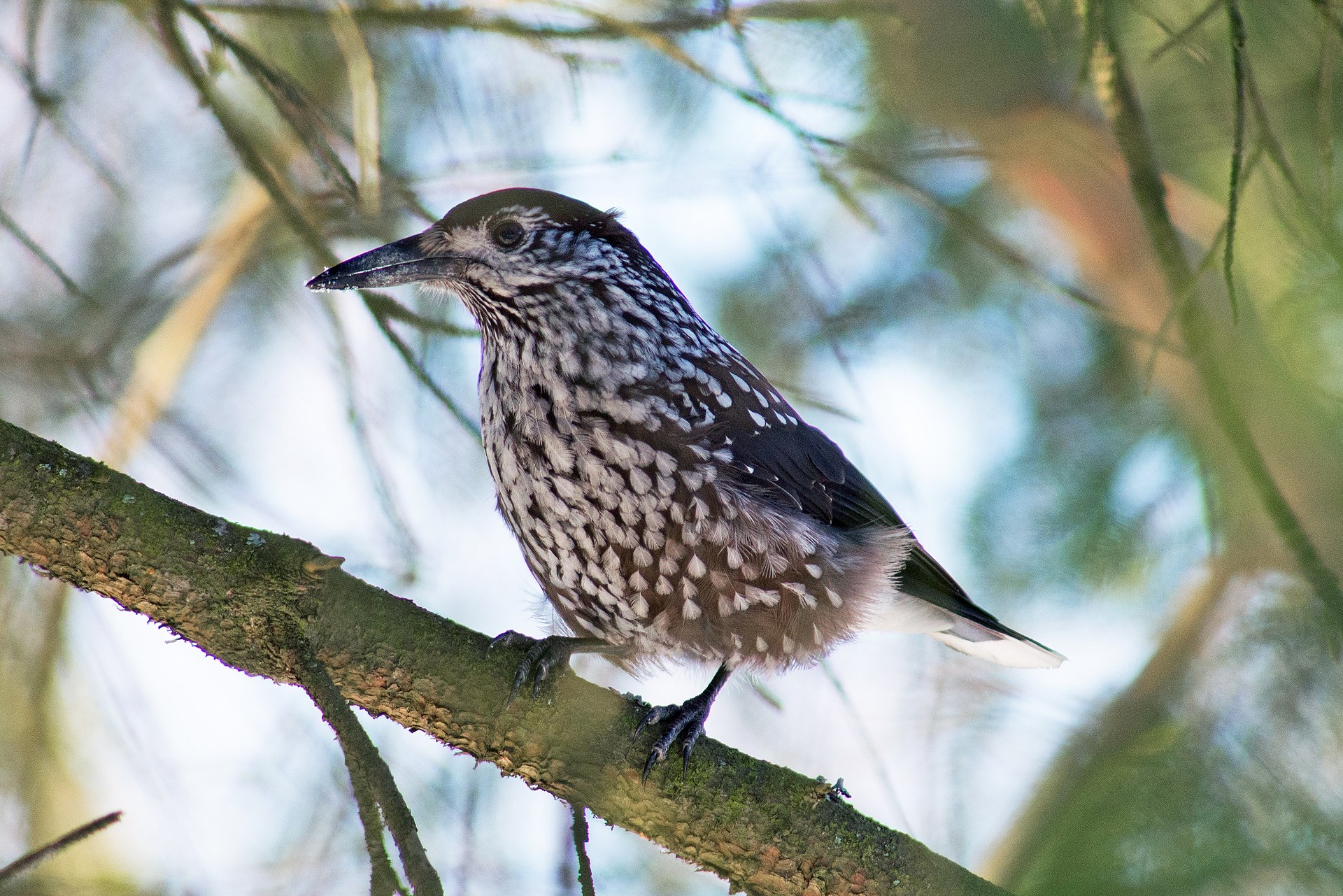 Spotted nutcracker ■■
Spotted nutcracker ■■ |
mimicry, cawing non-musical slow low-high (1-10 KHz) .
Grehh, grehh, grehh!!
Song: |
♫

|
| simple rhythmic | ||
| slur | ||
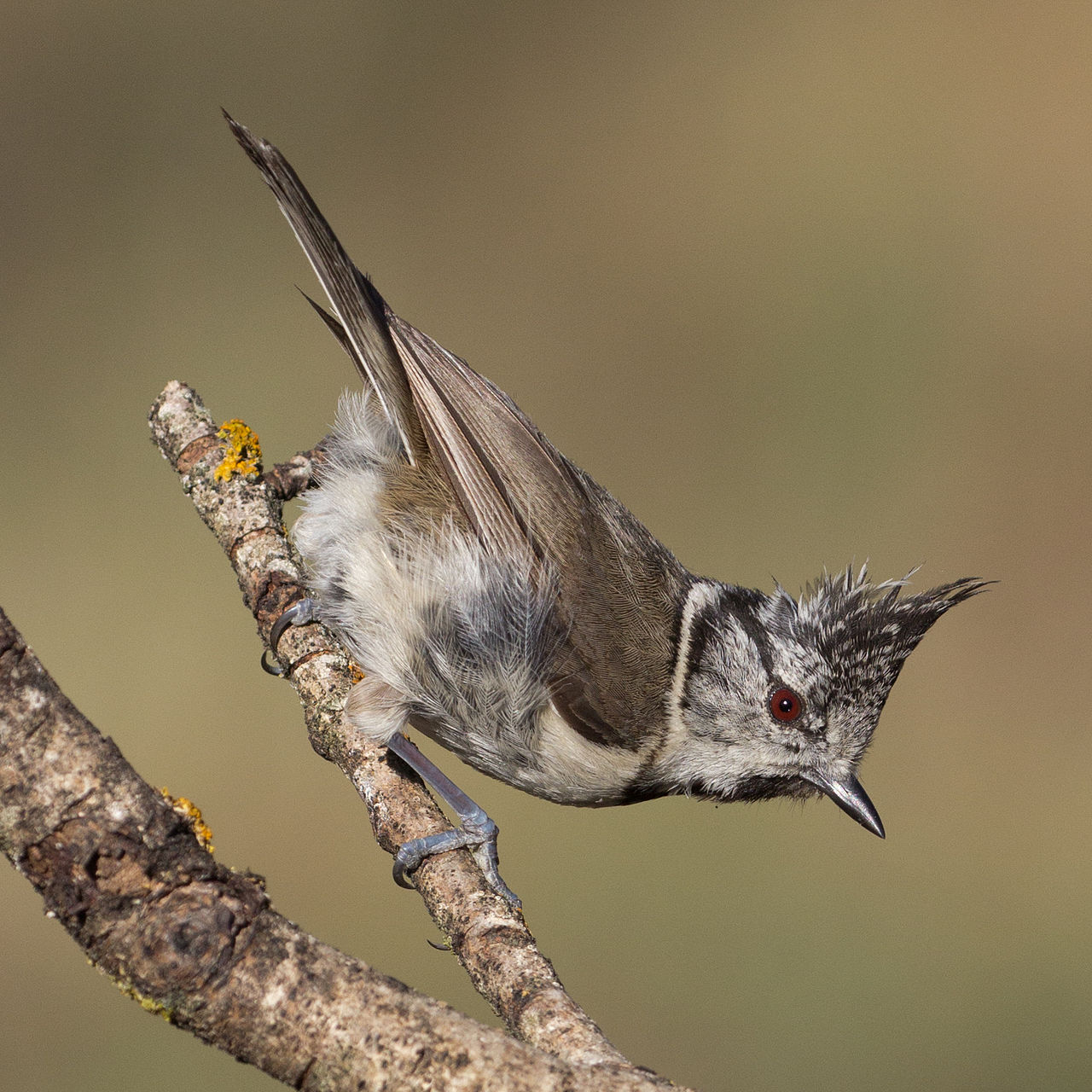 European crested tit ■■
European crested tit ■■ |
slur simple rhythmic fast high (3-9 KHz) .
Higher-pitched than great tit - how distinguish from coal tit, etc?
Song: |
♫

|
|
|
simple rhythmic slow high (3-7 KHz) .
Songs I've heard alternate two notes and look like a sine wave on the sonogram.
Vogelwarte.ch: Apart from minor differences in diet and size, Alpine Tit and Willow Tit can only be identified by their song. The Willow Tit utters a series of long, descending notes («tyoo tyoo tyoo tyoo»), whereas the Alpine Tit’s territorial song consists of short notes on an even pitch («dee dee dee dee dee»).
See more here.
Song: | ♫ |
| sings 30 seconds or longer | ||
| mimicry | ||
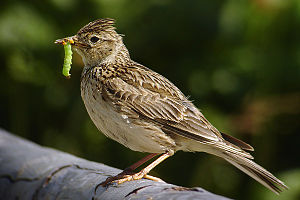 Eurasian skylark ■■
Eurasian skylark ■■ |
mimicry sings 30 seconds or longer slow medium (2-6 KHz) .
Fast chirpy improvization without a break, not very high, reminds me of a nightingale or a Eurasian reed warbler/Teichrohrsänger with the exact rhythm, but most likely sung in a cornfield. Or a Singdrossel that repeats its elements longer that that guy. Repeats elements 1-8 times. Sometimes buzzy/trilly. Can go on for minutes at a time. Ich habe es auch mit einem Amsel verwechselt, da er lang und melodisch, fast wie Amsel aber hört nicht auf.
Song: |
♫

|
| improvised melodic | ||
| rasp, rattle | ||
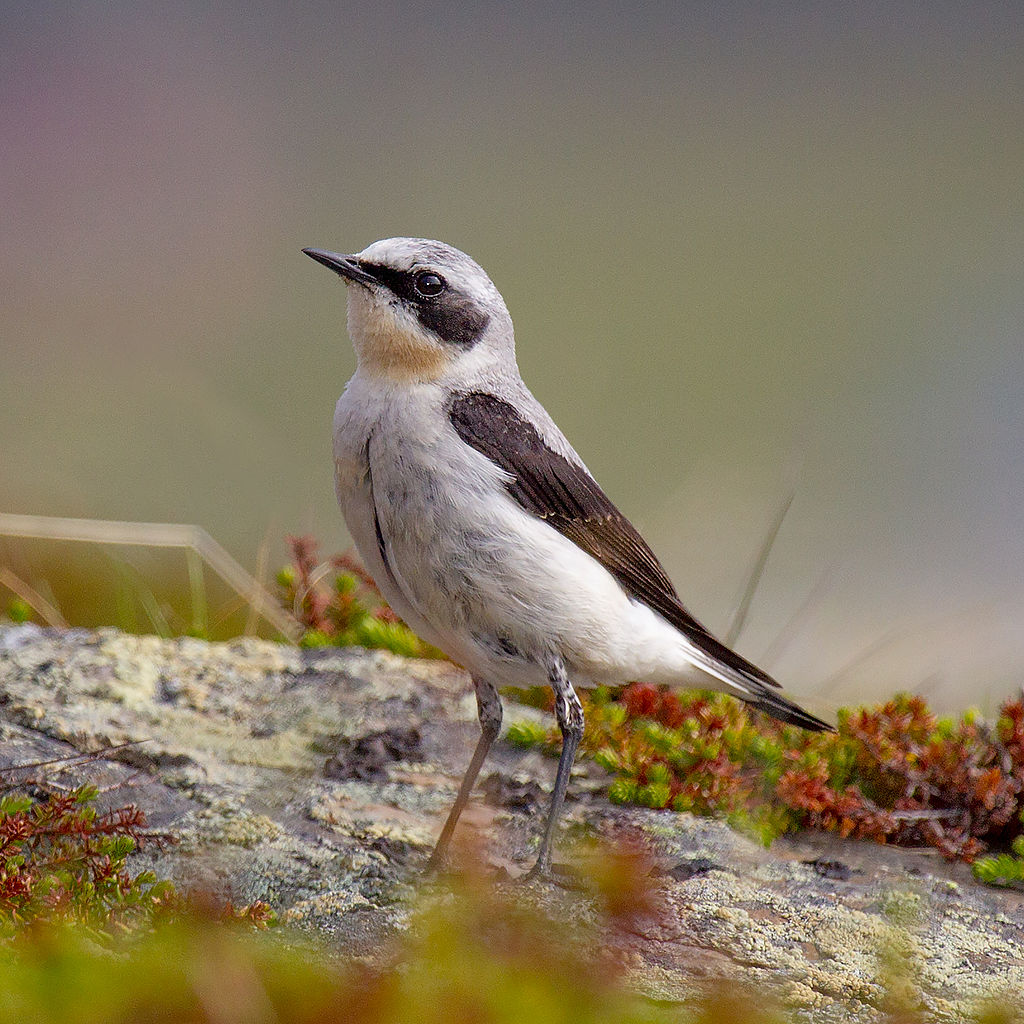 Northern wheatear ■■
Northern wheatear ■■ |
rasp, rattle improvised melodic fast medium (2-6 KHz) .
|
♫

|
| rasp, weird | ||
|
|
rasp, weird improvised melodic fast low-high (1-7 KHz) .
Wonderfully weird sequence of chirps, cheeps, growls. Elements often repeated twice. In a quiz, I mistook it for a starling. This recording reminds me of other water songbirds like the Marsh warbler and various reed warblers.
Song: |
♫
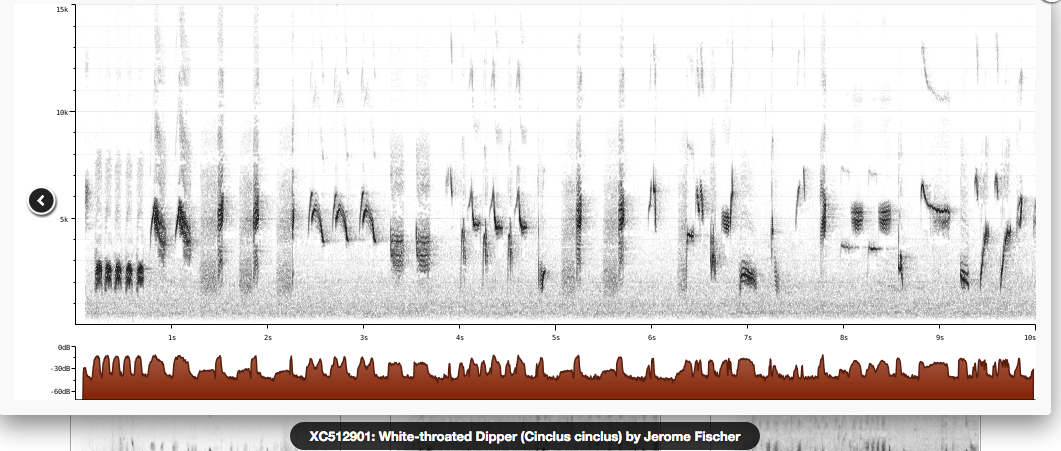
|
| simple rhythmic | ||
| trill | ||
 Common redpoll ■■
Common redpoll ■■ |
trill simple rhythmic fast medium (2-6 KHz) .
A few chirps and a trill, then repeat.
Song: |
♫

|
Practice
♫ Answer
Lesser whitethroat
♫
Answer
Willow tit
♫
Answer
Lesser whitethroat
♫
Answer
Willow tit
♫
 Answer
European crested tit XC560609-european-crested-tit-lophophanes cristatus2020.05.20 11.51 01 song.
♫
Answer
European crested tit XC560609-european-crested-tit-lophophanes cristatus2020.05.20 11.51 01 song.
♫
 Answer
Spotted nutcracker
♫
Answer
Spotted nutcracker
♫
 Answer
Ring ouzel
♫
Answer
Ring ouzel
♫
 Answer
White-throated dipper XC512901-Wasseramsel.
♫
Answer
White-throated dipper XC512901-Wasseramsel.
♫
 Answer
Tree pipit
♫
Answer
Tree pipit
♫
 Answer
Common redpoll XC703947 - Common Redpoll - Acanthis flammea - song.
♫
Answer
Common redpoll XC703947 - Common Redpoll - Acanthis flammea - song.
♫
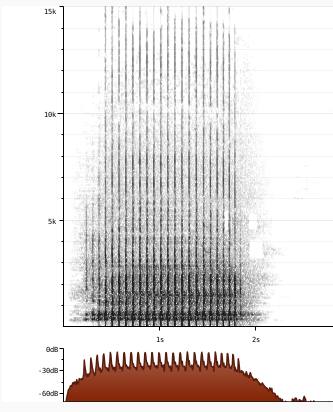 Answer
Eurasian three-toed woodpecker Dreizehenspecht trommelt
♫
Answer
Eurasian three-toed woodpecker Dreizehenspecht trommelt
♫
 Answer
Red crossbill XC775798 - Red Crossbill - Loxia curvirostra - song.
♫
Answer
Red crossbill XC775798 - Red Crossbill - Loxia curvirostra - song.
♫
 Answer
Northern wheatear
♫
Answer
Northern wheatear
♫
 Answer
Meadow pipit
♫
Answer
Meadow pipit
♫
 Answer
Eurasian skylark
♫
Answer
Eurasian skylark
♫
 Answer
Alpine accentor
♫
Answer
Alpine accentor
♫
 Answer
Rock bunting
♫
Answer
Rock bunting
♫
 Answer
Dunnock XC778759 - Dunnock - Prunella modularis - song recorded in Spain.
♫
Answer
Dunnock XC778759 - Dunnock - Prunella modularis - song recorded in Spain.
♫
 Answer
Whinchat XC775379 - Whinchat - Saxicola rubetra - song, recorded in Sweden.
Answer
Whinchat XC775379 - Whinchat - Saxicola rubetra - song, recorded in Sweden.
Birds with insufficient information about songs/calls
| Bird | Description | Audio |
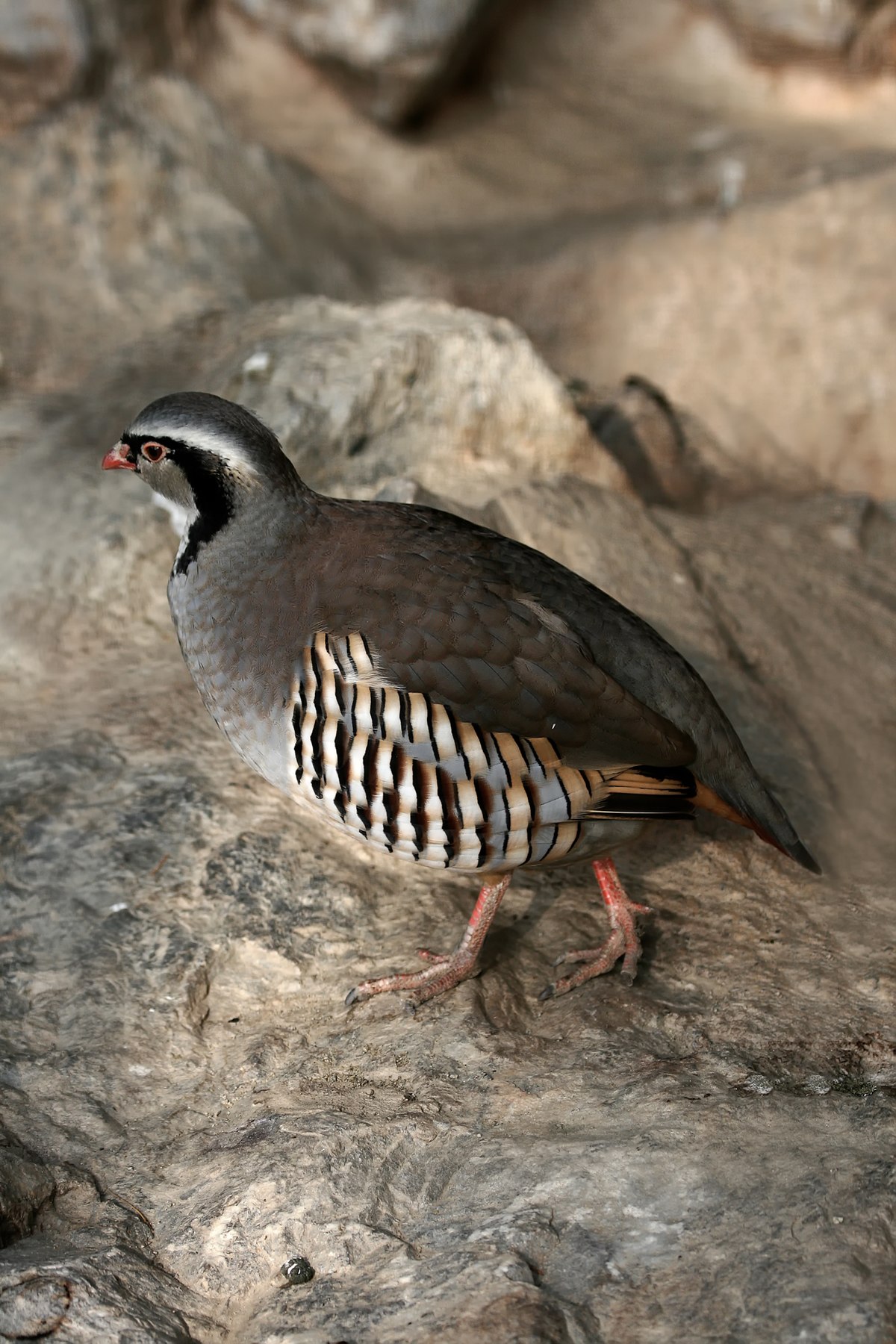 Rock partridge ■■
Info about calls, not song!!
Rock partridge ■■
Info about calls, not song!!
| ||
 Eurasian crag-martin ■■
Eurasian crag-martin ■■ |
Song: | |
| drumming | ||
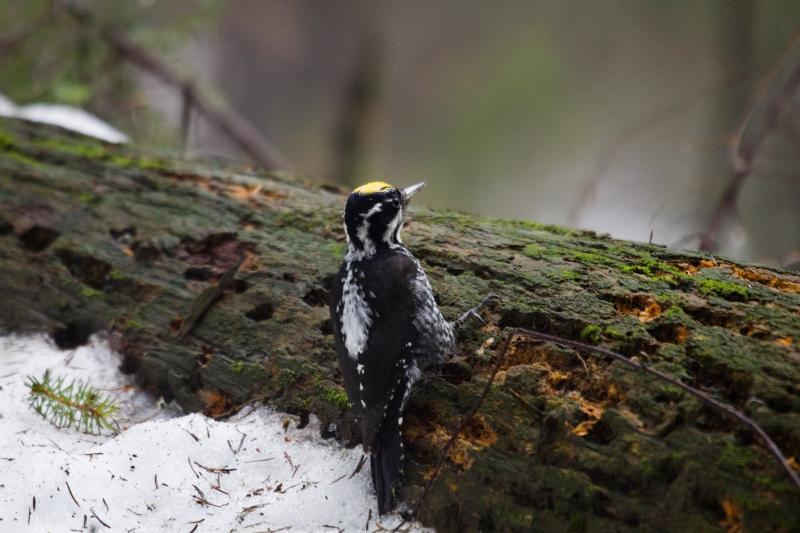 Eurasian three-toed woodpecker ■■
Eurasian three-toed woodpecker ■■ | drumming simple rhythmic fast low (1-3 KHz) . Fast drumming, constant volume, longer than great spotted woodpecker's. |
♫

|